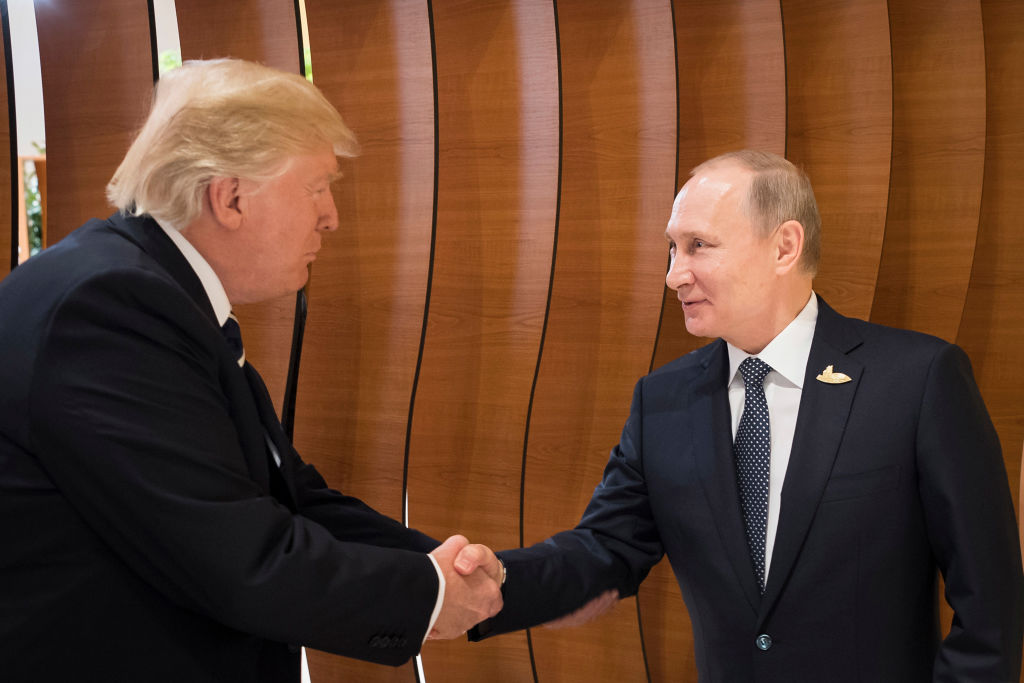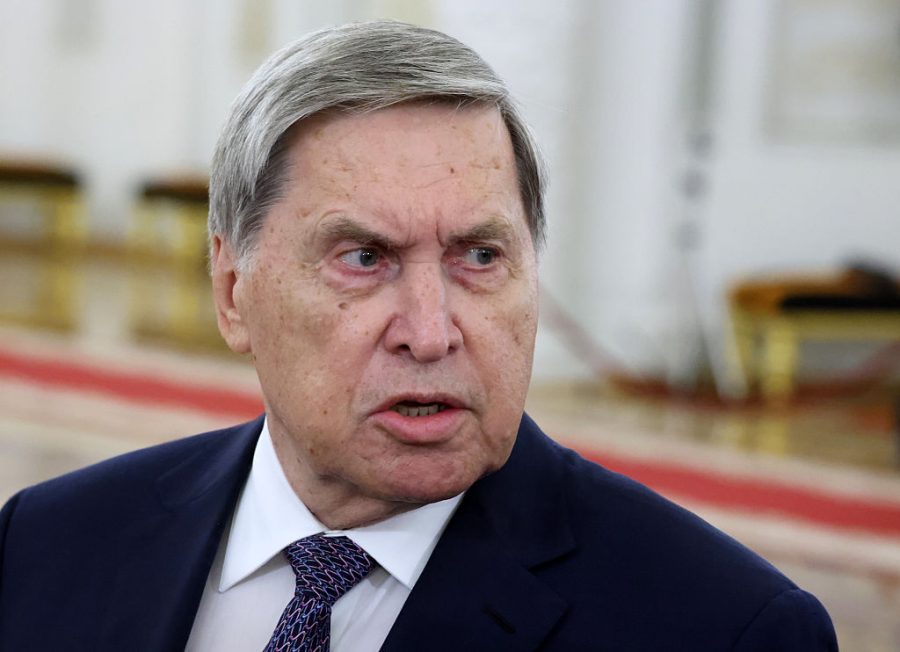In a move likely to mark the beginning of the end of the Ukraine war, Donald Trump today announced that he had begun talks with Vladimir Putin. Trump has already held a ‘lengthy and highly productive phone call’ with Putin, he announced in a post on Truth Social, adding that they agreed to ‘have our respective teams start negotiations immediately’.
The Biden administration promised repeatedly that no peace deal would be negotiated over the heads of the Ukrainians. But that was always, frankly, a lie. Trump at least has sufficient respect for Ukraine to be honest that the endgame of the war was always going to be decided in Washington, not in Kyiv.
Over the course of a tempestuous first month in office, Trump’s every utterance has blown some fundamental piety or other to smithereens. Ukraine is no exception. Since Putin’s ill-starred and disastrous full-scale invasion in February 2022, almost every western leader has claimed to believe that Russia’s forces can be decisively thrown back to the prewar borders, and promised to support Ukraine in that effort for ‘as long as its takes.’ But in truth nobody – not even in the Ukrainian presidential administration on Kyiv’s Bankova street – believed a full victory to be practically achievable. Nor did any serious Ukrainian politician believe that the West’s support would be indefinite, or that it would be sufficient to completely defeat Putin’s forces back.
Yesterday Trump definitively trashed the mirage of open-ended support for Kyiv with a single, jaw-dropping aside. ‘They may make a deal, they may not make a deal’, mused Trump. ‘Maybe [Ukraine] will be Russian some day’. He went on to stress that the US was looking for a ‘return on its investment’ with US aid for Ukraine, again floating the idea of a trade for Kyiv’s rare earth minerals.
Today he went further still, signalling that he and Putin had found common ground during their latest conversation. ‘As we both agreed, we want to stop the millions of deaths taking place in the War with Russia/Ukraine’, Trump wrote. ‘President Putin even used my very strong Campaign motto of, ‘COMMON SENSE.’ We both believe very strongly in it.’
On the face of it, Trump’s announcement seems to be the cruellest of stabs in the back for Ukraine. After three years of losing hundreds of thousands of young men in horrific Western Front-like conditions and suffering near-daily air raids on civilian targets, many Ukrainians will be disgusted to hear that the fate of their country is being bandied like a mere diplomatic throw-weight. But many, exhausted by years of almost static war and a lack of a clear path to victory, will also be relieved that an end is finally in sight.
Though a majority of Ukrainians still say they oppose the partition of their country, recent polls have also shown that they are also profoundly discontented with the way Volodymyr Zelensky and his government have fought the war. Just 16 per cent say that they would re-elect Zelensky, and 75 per cent believe that their leaders have profited from the war. Discontent over forced, press-gang style mobilisation of men for the front is growing. New rules reducing the age of conscription from the current 25 to 18 – a measure strongly backed by the former Biden-Harris administration – is also deeply unpopular.
How this war will end has always been devastatingly clear: the de facto (but not de jure) partition of the country along the line of control, and security guarantees for Kyiv short of full Nato membership. Indeed, according to four members of the Ukrainian negotiating team at the Russo-Ukrainian peace talks in Istanbul in March to April 2022, Zelensky was willing even then to concede on the future status of Donbas and Ukrainian neutrality. But the Russians overplayed their hand, pressing for restrictions on the size of the Ukrainian army and insisting on having a say on Russian language rights inside Ukraine. That, concluded the Ukrainians, constituted an unacceptable compromise of their country’s sovereignty, and the talks broke down. Days later, on 9 April 2022, an ashen-faced Zelensky toured the killing fields of Bucha, a prosperous suburb of Kyiv where more than 450 civilians had been brutally massacred by retreating Russian forces. The peace process was officially dead soon after.
Trump may have a more effective plan for actually ending the bloodshed
Putin’s forces continue to grind forward, and in the absence of a serious military defeat he has no immediate incentive to stop the war. His economy is suffering, but has far greater reserves of cannon fodder and treasure than Ukraine. So what does Putin want from negotiations? In short, whatever he can get. He has said he wants talks based on the ‘Istanbul framework’. Presumably that includes not just neutrality and the territory he has already taken – which he is likely to get – but also restrictions on Ukraine’s army and society, which he will not. Nato membership for Ukraine is a categorical non-starter, as are western peacekeepers on the ground. A Korea-style demilitarised zone may be the answer.
Second to keeping Nato out of Ukraine, what Putin wants most is ‘face,’ in the Chinese sense of public respect. For decades Putin has repeatedly complained that the West has humiliated, ignored and shown contempt for Russia. The dissonance between Russia’s real-life status as a mid-ranking economic power with an economy smaller than the Netherlands and a collection of allies recruited from the world’s rogue states versus his fantasies of superpower status ache like a phantom limb.
Insulting and peremptory as Trump’s moves may seem to his allies, he is in a position to give Putin one thing he craves – a show of power. Trump rounded off his message by announcing that he and Putin had agreed to ‘work together, very closely, including visiting each other’s Nations’. A visit by Putin to Washington would be a slap in the face to the International Criminal Court (which the US does not recognise in any case). But for little Putin it would be an apotheosis. Similarly a Trump visit to Moscow, like the Sochi Olympics or the 2018 World Cup, would be an opportunity for the Kremlin to puff up its wealth and greatness to the world. Neither visit is likely to actually happen.
But Trump – who promised that his second term would see him remembered as a peacemaker – may have a more effective plan for actually ending the bloodshed than Biden’s concept of a forever war to the last drop of someone else’s blood.








Comments